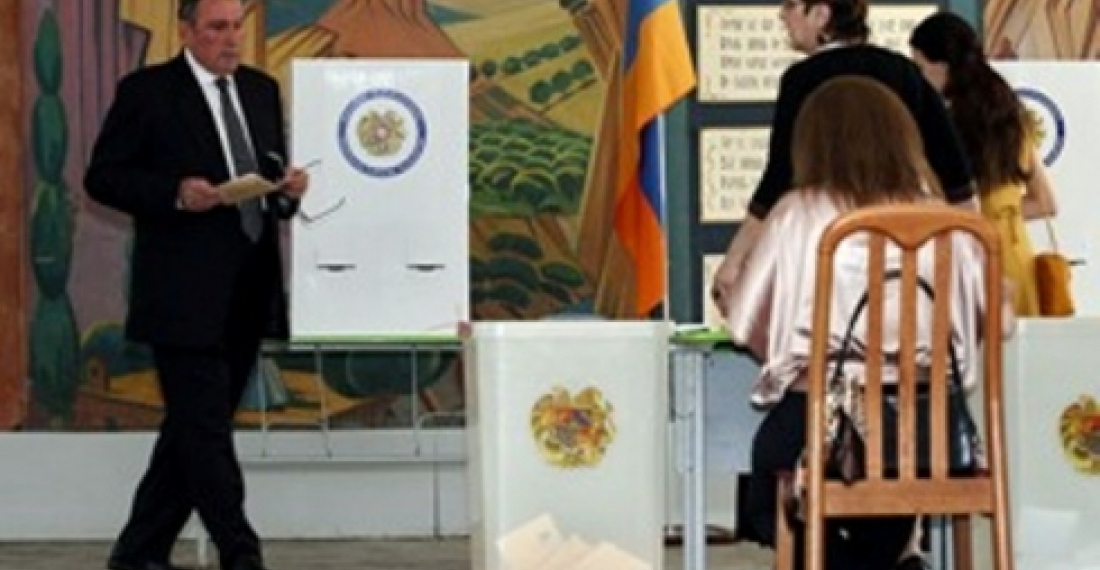Sources close to the Armenian central Election Commission say that 35.54% of voters had cast their votes by 2.00 p.m. in the Parliamentary Elections taking place today. The polling stations opened to voters at 8 am and are due to close at 8 pm. Voting in yerevan in the same period was reported at 33.25%, 2% below the national average.
The official number of registered voters is 2,484,003 distributed over 1982 polling stations throughout the country. Voters will elect the 131 member parliament according to a proportional and majoritarian system. 90 MPs are elected by the proportional list from a choice of nine parties and blocs.
The proceedings are being monitored by 647 international and 31451 domestic observers.
As soon as voting started this morning a controversy emerged around the issue of the ink that was bering used to stamp passports of those that had voted. The ink was supposed to last for at least twelve hours but it vanished after a few minutes. The issue had been raised some days ago with the Central Electiosn Commission who had dismissed the report. This morning the Chairman of the Armenian CEC Tigran Mukchukian when asked about the vanishing ink said that it was a \"technical problem\" and had been solved. The Chairman of the CEC said that the problem was due to the ink not being shaken before being administered but some journalists who tried the process said with or without shaking the ink was dissappearing.
Yesterday the Armenian Constitutional Court rejected a request by a number of Members of Parliament for the list of those people who had voted to be made public after the election. The proposal had been opposed by the government.
In the ninth part of its series of briefings on the 2012 Armenian Parliamentary Elections, the British organisation LINKS looks at the role of international organisations in election observation, and the increasing importance of the work of domestic observers. LINKS Analysis Briefings are available here
source: commonspace.eu
photo: Armenian first President and leader of the opposition Armenian National Congress voting in todays Parliamentary election in Armenia (picture courtesy of news.am)







